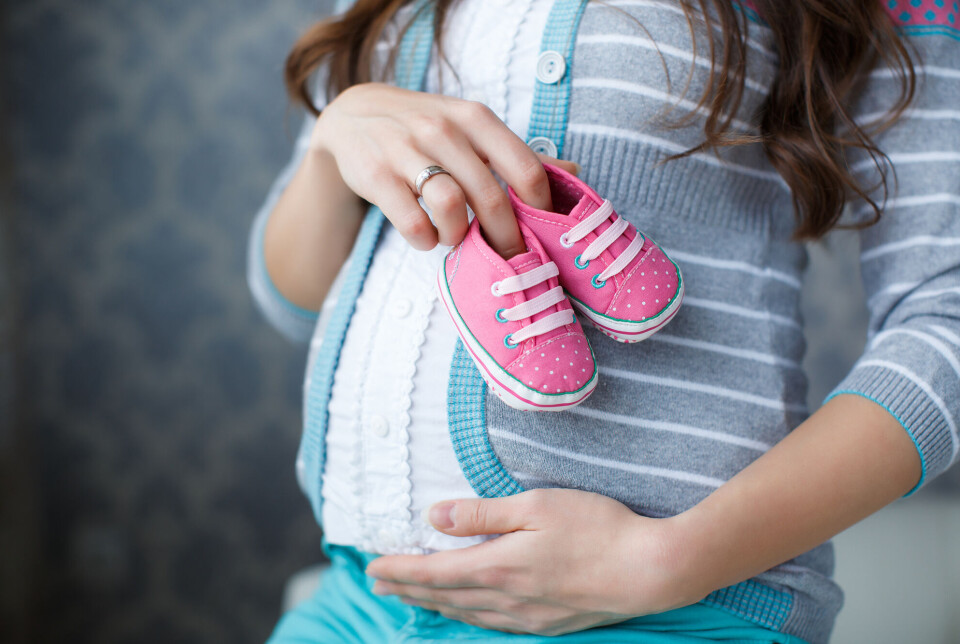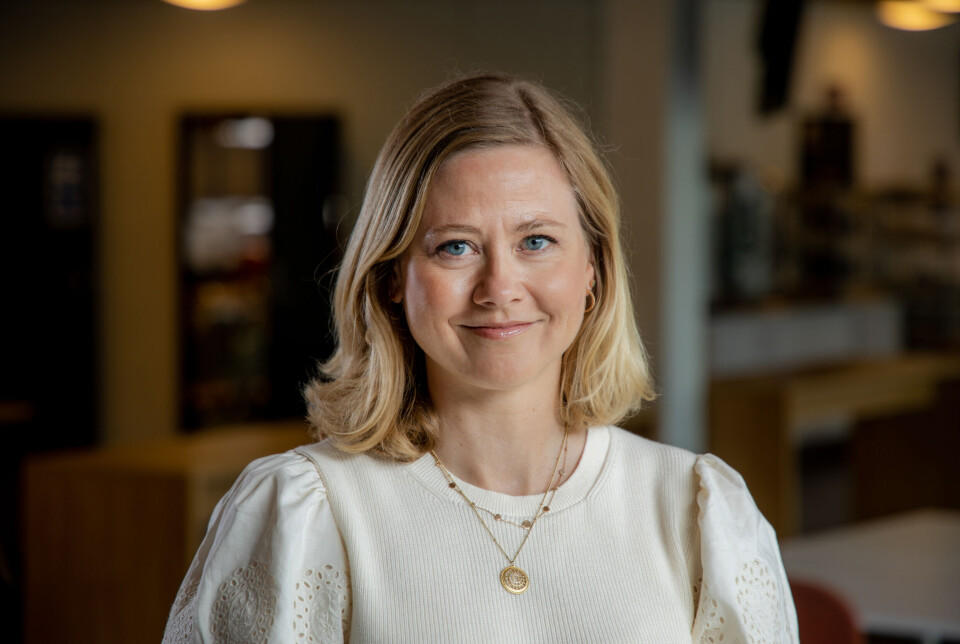
Whooping cough cases on the rise: Pregnant women advised to get vaccinated
Denmark has declared a whooping cough outbreak. Norway is also experiencing an increase. The Norwegian Institute of Public Health now wants pregnant women to be vaccinated to protect the baby.
During the pandemic, the number of whooping cough cases plummeted. Norway is now experiencing an increase in whooping cough, or pertussis, again.
According to Margrethe Greve-Isdahl, senior physician at the Norwegian Institute of Public Health (NIPH), 500 cases have been reported so far this year. These figures are expected to rise in the coming year.
NIPH has recommended that pregnant women be vaccinated against pertussis in the government's proposal for the state budget.
Protection for vulnerable newborns
Small infants are the most at risk of serious illness.
“Newborns are most vulnerable before they receive their first vaccine dose at three months old,” Greve-Isdahl says.
Antibodies are formed when the mother is vaccinated in the 2nd or 3rd trimester of pregnancy. The antibodies are then transferred to the foetus and can prevent serious illness.
This ensures that the newborn is protected during the most vulnerable period.

Norway’s vaccination
coverage among children is high, which protects them against serious illness. However,
this is not enough to prevent the spread of infection.
‘Immunity debt’ due to the pandemic
NIPH did not recommend vaccinating pregnant women against whooping cough in 2019, so why has this changed?
“We wrote then that we might modify the recommendation if the epidemiological situation were to change. We have always believed that this is a safe and effective measure to take if the incidence of disease indicates that it’s necessary,” Greve-Isdahl says.
That has now happened.
Most viewed
The incidence of whooping cough dropped sharply during the Covid-19 pandemic due to infection control measures.
“This is precisely why we fear a new outbreak of whooping cough that can cause serious illness,” Greve-Isdahl says.
The low incidence rate in the last three years is – paradoxically – the reason for the problem.
“Since so few people have been infected during the Covid-19 pandemic, we’ve ended up in an ‘immunity debt’,” she says.
Fewer people in the population are now immune to whooping cough.
Vaccine available from your GP
It is important for pregnant women to be vaccinated to slow down the increase in whooping cough, according to the senior physician.
If the budget proposal is approved by the Norwegian parliament, it will still take some time to implement the vaccination measure for pregnant women.
“We expect to have the programme in place during the spring of 2024,” Greve-Isdahl says. “But there is nothing to prevent women who are due before then from asking their GP about the vaccine,” she says.
The vaccine costs around 350 NOK (30 USD).
The vaccine used is the pertussis booster vaccine for adults. It protects against diphtheria and tetanus in addition to whooping cough.
Young people infected the most
Among the 500 cases of whooping cough reported so far this year, most cases show up in adolescents aged 15 to 19. Still, there are fewer infected than before the pandemic.
Outbreaks of whooping cough can occur suddenly and spread fast, creating a high risk for more serious cases of illness and also deaths among infants.
Children in Norway receive pertussis boosters in the 2nd grade and 10th grade, according to the childhood immunisation programme.
Vaccine effect diminishes after a few years
“The whooping cough vaccine provides good protection against serious illness. But the protection against becoming infected and falling ill diminishes after a few years,” Greve-Isdahl says.
Adults are advised to get a booster dose every ten years.
“We assume that many are offered this vaccine when they travel abroad, or if they have contaminated wounds and are in contact with healthcare services,” she says.
But Greve-Isdahl admits that most people probably do not know that boosters are recommended for everyone every ten years.
The '100-day cough'
Whooping cough does not usually pose a danger for older children or adults.
“It causes prolonged, very troublesome coughing, and is sometimes called the ‘100-day cough’. It causes only a low fever, so the disease is probably somewhat underreported,” Greve-Isdahl says.
However, good access to tests means that we have less underreporting in Norway than in many other countries.
Can be fatal
Several countries already offer the pertussis vaccine to pregnant women. The USA and UK started the practice over ten years ago.
Denmark reports a significant increase in whooping cough and has declared it an outbreak. An infant died from it this summer.
Denmark has reintroduced the pertussis vaccine for pregnant women. Other countries have followed suit, most recently Sweden last year.
The incidence is highest among children under the age of one, adolescents, and adults.
The vaccine worked better before
The pertussis vaccine that was administered until 1998 gave better immunity than the one that is given now.
"But the downside was that it caused more side effects and was often associated with fever and screaming fits among infants," Greve-Isdah says.
People who received the vaccine after 1998 have had fewer side effects.
"But the downside is that the protection diminishes after the first few years," she explains.
———
Translated by Ingrid P. Nuse
Read the Norwegian version of this article at forskning.no
Reference:
Forslag om kikhostevaksine til gravide for å beskytte babyen (Suggestions for pertussis vaccine for pregnant women to protect the baby), Norwegian Institute of Public Health, 11 October 2023.





































